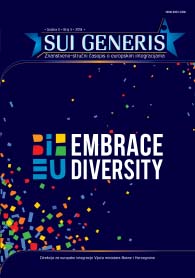ЕУ и БиХ: Уговорни брак или брак из љубави
EU & BiH: Love marriage or marriage of convenience
Author(s): Snježana Zarić, Marko ĐogoSubject(s): National Economy, Economic policy, EU-Approach / EU-Accession / EU-Development, Financial Markets
Published by: Direkcija za evropske integracije Vijeća ministara Bosne i Hercegovine
Keywords: EU integration process of BiH; economy structure; business cycles;
Summary/Abstract: During the 1990s, a bitter discussion took place between Paul Krugman and Jeffrey Frankel. In the centre of it was the so-called the hypothesis of endogeneity. The hypothesis declares that countries could fulfil conditions for taking part in optimum currency area ex post, meaning after they become part of it, even if they don’t fulfil that conditions ex ante. Given the BiH’s progress on its path toward the EU accession and especially the fact that BiH has been practicing the currency board as the monetary policy framework since 1997, this issue has become increasingly important for us too. Therefore, this paper endeavour to answer the question whether BiH fulfils conditions for taking part in optimal currency area, or it can fulfil those conditions subsequently. This does not refer to fulfilling the so-called Maastricht criteria but instead to a deeper analysis founded on question whether the EU integration process of BiH will lead to the convergence of economy structures and therefore synchronisation of business cycles or whether it will face with specialization and asymmetrical shocks. The analysis paper will take Bosnia and Herzegovina as an example and in doing so will respect the analysis framework Krugman and Frankel used by in their papers. Unfortunately, although many similar analyses have already been made for other countries in transition (CIT) almost none has taken BiH as an example, which justifies this paper’s hypothesis.
Journal: Sui generis
- Issue Year: 2018
- Issue No: 5
- Page Range: 11-31
- Page Count: 21
- Language: Serbian

